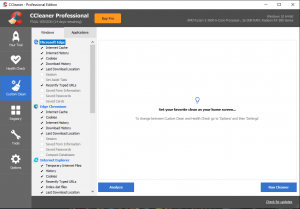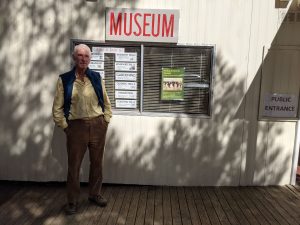Know your rights at music festivals: Q&A with Brice Hamack
For many young people, music festivals and concerts are the first experiences with law enforcement. 2018 saw a swarm of complaints against police for conducting illegal strip searches, including “squat and cough” cavity searches, against both teenagers and adults at music festivals across Australia.

Lucy Moore, a 19-year-old girl, alleged police performed an unlawful strip and cavity search in view of other music festival attendees and male police officers at a music festival in March. Moore’s experience has sparked youth law organisations to urge festival-goers to educate themselves on their rights.
I spoke to Brice Hamack, supervising solicitor at the ACT Youth Law Centre, to find out exactly what your rights are at music festivals in the ACT.
When is security allowed to search you?
In the ACT, police are allowed to search you if they have reasonable grounds to believe you have an illegal item on you, and that it is necessary to search you without a warrant because the situation is ‘serious and urgent.’ Unfortunately, because music festivals are so rife with drug use, it doesn’t take much suspicious activity for a police officer to have reasonable grounds that someone may have drugs on them.
What are reasonable grounds for a search?
Reasonable suspicion is more than just a hunch or possibility, it is a suspicion based on actual facts. While being at a festival where there is known drug use occurring is not by itself sufficient to form reasonable suspicion for a particular person, if that person is seen hiding objects that look like pills into their pockets as they walk by police at a festival, that may amount to reasonable suspicion. Moreover, a drug-sniffing dog signaling to police that you may have drugs on you is also sufficient to be reasonable suspicion.
So, you’ve been stopped by police for a search. What happens next?
Under an ordinary search, the police can quickly run their hands over the persons outer clothing after having asked the person to remove their jacket or coat. The police can also have the person remove their headwear, gloves, shoes and socks.
When are you allowed to ask for privacy?
Police should respect your privacy and dignity during searches, and it is always open to someone to ask for the search to be conducted in private. Whether the police agree, and what level of privacy is provided, will depend on various factors including how intrusive the search is, whether a private area is available and the seriousness and urgency of the safety risk if one is present.
What can you be asked to do during a search?
While they can ask you to remove some clothing, police are not allowed to search your body cavities. Being asked to ‘squat-and-cough’ is, in essence, a cavity search and could be considered unlawful.
Can police confiscate prescription medication?
You should never prevent police from seizing items off you, even if you feel they are acting unlawfully. You will likely be charged with obstructing police. You can alert the police to the fact that the pills are prescription medication and ask them to perform an onsite pill test if one is available to confirm your assertion. Ultimately you may not be able to have the pills returned to you until the police investigation is complete and you can request to have seized items returned to you from the police station.
If you have had negative experiences with police at music festivals, you can call the Youth Law centre for free and confidential legal advice on (02)6173 5410 or email them at ylc@legalaidact.org.au.



Be the first to comment!